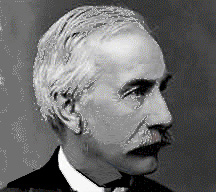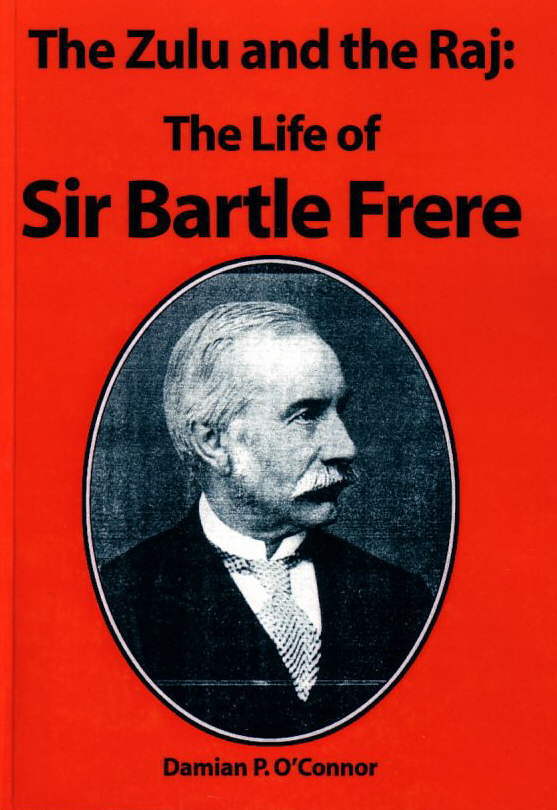

Frere, John \'fri(e)r\ . 1740-1807. English antiquary. Country squire; active member of Royal Society of Antiquars (from 1771); discovered (1790) Stone Age implements at Hoxne [See Below] and suggested they dated from earlier than 4004 B.C., then often considered date of creation of Earth; a founder of prehistoric archaeology. His son John Hookham Frere (1769-1846), diplomat and writer; M.P. (1799-1802). British envoy at Lisbon (1800-02), Madrid (1802-04); British minister with the Spanish Junta (1808-09); in retirement at Malta (1820-46)(The Villa Frere still exists today on Malta - Stan Freer). Wrote witty parodies for the AntiJacobin (1797-98); reintroduced Italian ottava rima into English verse in mockheroic epic The Monks and the Giants (1818); translated Aristophanes (1839-40). His nephew Sir Henry Bartle Edward Frere (1815-1884), (See Below for more information) colonial administrator; entered Bombay civil service (1834); chief commissioner of Sind (1850-59); suppressed great Indian Mutiny of 1857 in Sind and the Punjab; governor of Bombay (1862-67); in England as member of the Council of India (1867-77); governor of the Cape and first high commissioner of South Africa (1877); his demands on Cetewayo precipitated the Zulu War (1879), and he was recalled (1880).
(From Infopedia 2.0, a Computer Encyclopedia by Softkey)
The brief, but defining, article below written by John Frere in 1790 set the stage for Paleolithic Archaeology as we know it today. It challenged Archbishop James Ussher's Creationist doctrine made in the early 1600s that pinpointed creation as beginning at 9:00 PM on October 23rd in 4004 B.C. Among the tools first identified by Frere was the Acheulian HandAxe which has become a basic “Horizon Marker” of the Lower Paleolithic cultures studied by archaeologist today. (Stan Freer)
(“The Beginning of Paleolithic Archaeology” - John Frere from Man’s Discovery of his Past: Literary Landmarks in Archaeology edited by Robert F. Heizer, Prentice-Hall, Inc., 1962, pp. 70-71)
Archaeologia, 1800, vol. 13, pp. 204-205.
John Frere's account of finding in 1790 Acheulean handaxes associated with the large bones of unknown animals (actually elephants) is the first clear presentation of the association in an open site of man-made tools and extinct animals. This account was ignored until J. Flower called attention to it sixty years later. Prestwich (see his account further on in this chapter) and Lyell (1863:166-169) visited the Hoxne pit and described the geology, and interest in the locality is still active (West, 1956).
LETTER TO THE REV. JOHN BRAND, SECRETARY, READ JUNE 22, 1797
Sir:
I take the liberty to request you to lay before the Society some flints found in the parish of Hoxne, in the county of Suflolk, which, if not particularly objects of curiosity in themselves, must, I think, be considered in that light from the situation in which they were found.
They are, I think, evident weapons of war, fabricated and used by a people who had not the use of metals. They lay in great numbers at the depth of about twelve feet, in a stratified soil, which was dug into for the purpose of raising clay for bricks.
The strata are as follows:
1. Vegetable earth l l/2 feet.
2. Argill 7 l/2 feet.
3. Sand mixed with shells and other marine substances 1 foot.
4. A gravelly soil, in which the flints are found, generally at the rate of five or six in a square yard, 2 feet.
In the same stratum are frequently found small fragments of wood, very perfect when first dug up, but which soon decompose on being exposed to the air; and in the stratum of sand (No. 3), were found some extraordinary bones, particularly a jaw-bone of enormous size, of some unknown animal, with the teeth remaining in it. I was very eager to obtain a sight of this; and finding it had been carried to a neighboring gentleman, I inquired of him, but learned that he had presented it, together with a huge thigh-bone, found in the same place, to Sir Ashton Lever, and it therefore is probably now in Parkinson's Museum.
The situation in which these weapons were found may tempt us to refer them to a very remote period indeed; even beyond that of the present world; but, whatever our conjectures on that head may be, it will be difficult to account for the stratum in which they lie being covered with another stratum, which, on that supposition, may be conjectured to have been once the bottom, or at least the shore, of the sea. The manner in which they lie would lead to the persuasion that it was a place of their manufacture and not of their accidental deposit; and the numbers of them were so great that the man who carried on the brick-work told me that before he was aware of their being objects of curiosity, he had emptied baskets full of them into the ruts of the adjoining road. It may be conjectured that the different strata were formed by inundations happening at distant periods, and bringing down in succession the different materials of which they consist; to which I can only say that the ground in question does not lie at the foot of any higher ground, but does itself overhang a track of boggy earth, which extendsunder the fourth stratum; so that it should rather seem that torrents had washed away the incumbent strata and left the bog-earth bare, than that the bog-earth was covered by them, especially as the strata appear to be disposed horizontally, and present their edges to the abrupt termination of the high ground.
If you think the above worthy the notice of the Society you will please to lay it before them.
I am, Sir,
with great respect,
Your faithful humble Servant,
John Frere
*************************
additional information from Compton's Encyclopedia
Frere, John Hookham (1769-1846), English diplomat and author, uncle of Henry B. Frere; minister to Portugal 1800-02, to Spain 1802-04 and 1808; his spirited verse translations of Aristophanes' plays have never been equaled.
Frere, Henry Bartle (1815-84), English administrator, nephew of John Hookham Frere; governor of Bombay 1862-67; as special commissioner to East Africa influential in abolishing slave trade in Zanzibar; as governor of Cape Colony 1877-80 attempted confederation of South Africa.

Frere, Sir Henry Bartle Edward (1815-1884), British colonial administrator and governor of the Cape Colony, South Africa (1877-1880), whose career ended disastrously as a result of the Zulu War of 1879. He had a long and distinguished career as a civil servant in India (1834 to 1862), the last five years of which were spent as governor of Bombay (now Mumbai). Frere subsequently served on the Indian Council in Great Britain for ten years. In 1877 he was selected by Lord Henry Carnarvon, British colonial secretary, as governor of the Cape Colony to implement the policy of confederation, uniting the British colonies and the Afrikaner (Boer) republics into one nation subject to British rule.
When he arrived at the Cape, Frere found that Sir Theophilus Shepstone,
another Carnarvon appointee, had just annexed the Afrikaner republic in the
Transvaal, helping the cause of confederation. Frere found, however, that the
Cape politicians, largely dominated by the English, were opposed to any form
of federation with the Afrikaner republics to the north. Frere then turned his
attention to the Zulu, believing that the destruction of their military forces
was a vital step toward federation. He started a war with the Zulu in 1879,
which led to an early British disaster, the defeat at the Battle of Isandhlwana
by the Zulu under Cetshwayo. Lord Carnarvon resigned and the official policy
of confederation was abandoned. The outcome of Isandhlwana was reversed
later in the year, when Lord Chelmsford defeated the Zulu at the Battle of
Ulundi, ending the war. Nonetheless, Frere was strongly criticized by the
British parliament and was recalled to London in July 1880.
.
"Frere, Sir Henry Bartle Edward," Microsoft® Encarta® Encyclopedia 99. © 1993-1998 Microsoft Corporation. All rights reserved.
For more information on Sir Henry Bartle Frere go to Damian P. O'Connor's web site. Damian did his thesis on Sir
Bartle Frere. Damian has also written a book entitled "The Zulu and the
Raj: The Life of Sir Bartle Freer". 
It can be purchased for 15 pounds or $25.00 US plus postage by contacting him at Damian O'Connor

TO DAMIAN P. O'CONNER'S WEB SITE ON SIR HENRY BARTLE FRERE
TO FRERE PEDIGREE BY HORACE FRERE ARTHUR AND HOWARD FRERE
TO PLAQUE HONOURING ANTIQUARIAN JOHN FRERE
TO OBITUARY OF RICHARD FRERE OF ROYDON